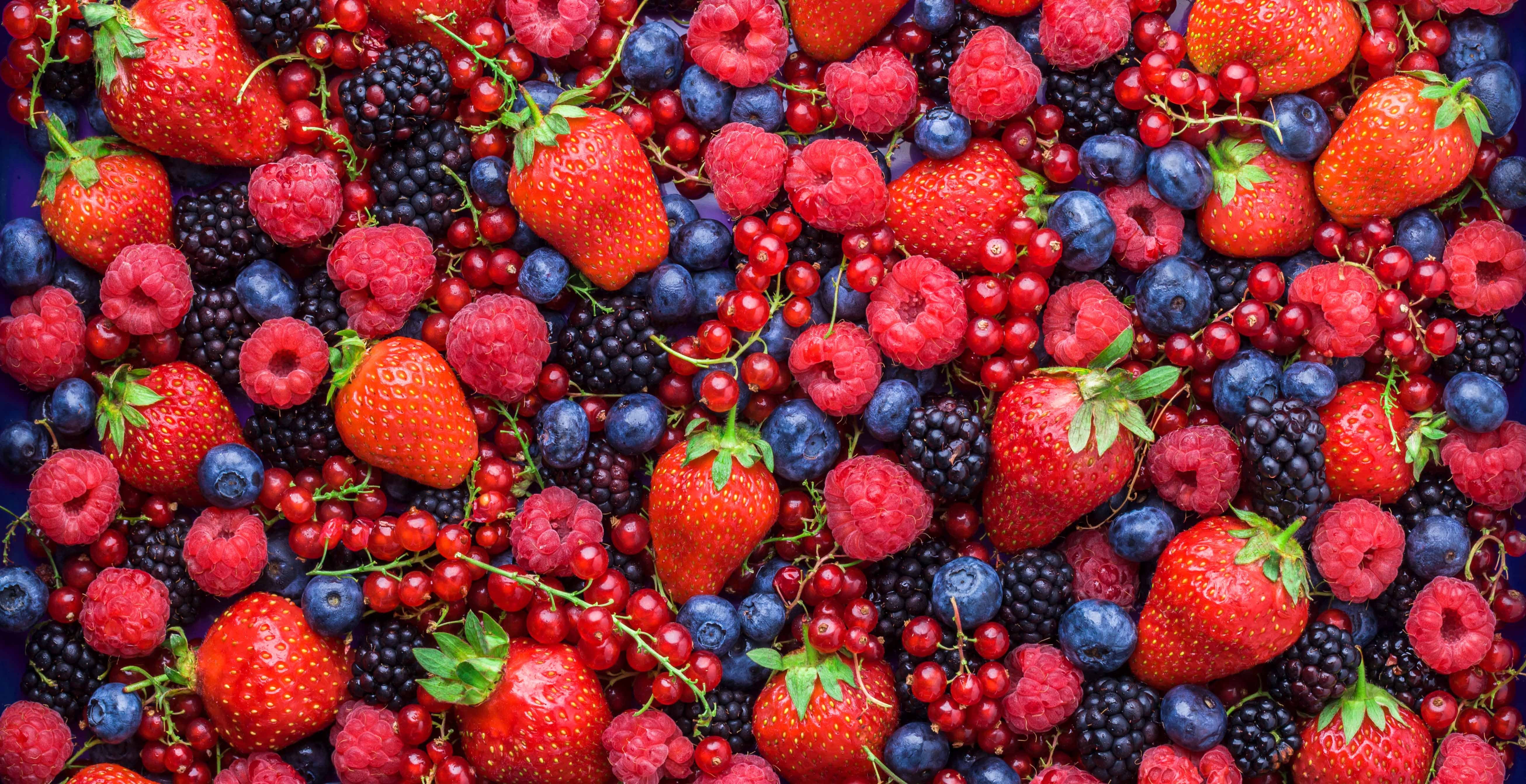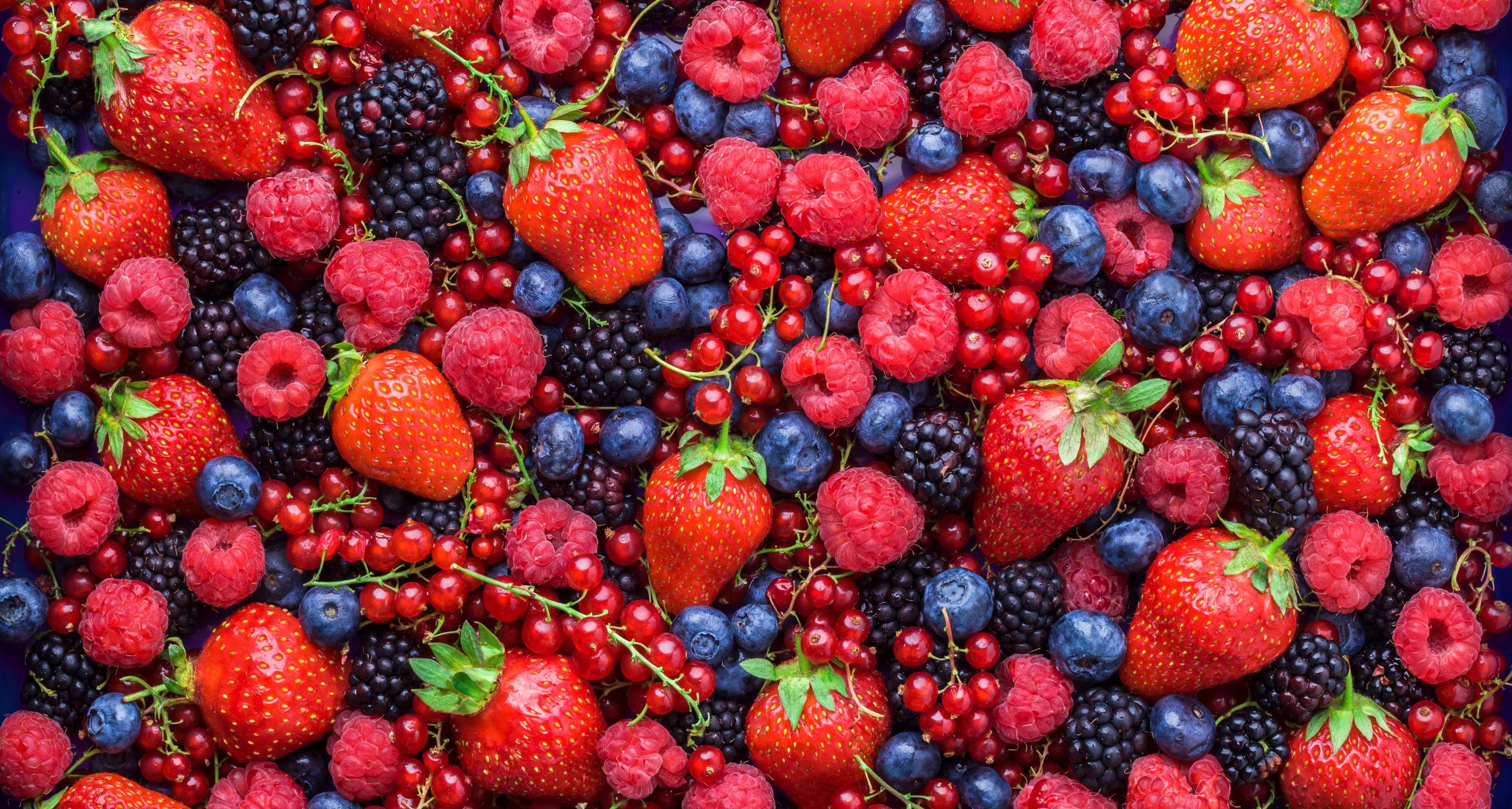All About Berries


Blackberries, blueberries, cranberries, raspberries – delicious, versatile, low-calorie, and chock-full of the good stuff. Plain and simple, berries are some of the healthiest things you can eat. We did a little research to find out more about why they’re so great.
Recently released by the editors of Readers’ Digest, the book Foods That Harm, Foods That Heal: What to Eat to Beat Disease and Live Longer, details the health benefits of berries, which include fighting cancer, lowering diabetes risk, boosting brain function, repairing aging skin, and preventing birth defects.
Here are some of those benefits, excerpted from the book, for which consultants included registered dietitian Fran Berkoff and McGill University’s Dr. Joe Schwarcz.
Fights cancer. The antioxidants in berries neutralize free radicals, unstable compounds that can damage cells and lead to diseases including cancer. Berries also contain anthocyanins, plant pigments that have been shown to prevent cancer and heart disease, as well as ellagic acid, another cancer-fighting substance.
Lowers diabetes risk. In one study, obese volunteers lowered their diabetes risk by drinking a smoothie loaded with blueberries twice a day. The blueberries increased insulin sensitivity, which helps keep blood sugar levels healthy. And another study, in mice, suggested the fruit can help prevent hardening of the arteries.
Boosts brain function. Studies show that berries are loaded with valuable antioxidants that can slow down brain aging and enhance your memory. Blueberries appear to be especially healthy. They’re rich in anthocyanins, flavonoids that seem to offer brain benefits.
Helps cholesterol and blood pressure. Adults who ate about a cup of berries a day lowered their blood pressure and raised their HDL (good) cholesterol after eight weeks, according to a study from Finland. Berries are also rich in pectin, a form of soluble fibre that can lower total cholesterol levels.
Reduces risk of macular degeneration. Blueberries are one of the richest fruit forms of antioxidants. One study found that people who ate the greatest amount of fruit were the least likely to develop age-related macular degeneration, the leading cause of blindness in older people.
Prevents birth defects. Strawberries and raspberries are a good source of folate, a nutrient needed by expectant mothers to stave off birth defects. One cup provides about 30 mcg, or roughly 7 per cent of the RDA.
Relieves constipation. There are 7 g of fibre in a cup of raw raspberries. The seeds in raspberries provide insoluble fibre that helps prevent constipation.
Repairs aging skin. The anthocyanins in berries may even prevent some of the effects of aging, such as skin damage from ultraviolet light. Studies have also shown that ellagic acid may also repair skin damage by the sun.
Becky Kerkenbush, a registered dietitian in Wisconsin, says in short, berries are healthy because they are generally high in antioxidants and fibre but low in calories, and they don’t contain sodium, fat or cholesterol.
Kerkenbush notes that blueberries in particular are full of vitamins B, C, and E, as well as copper, selenium, and zinc. They’re also full of the aforementioned anthocyanins, which are responsible for their beautiful dark blue colour.
Strawberries (although funnily enough, they are technically not berries in the botanical sense) are full of tons of vitamin C – one cup has 136 per cent of our recommended dietary allowance. They also offer lots of fibre as well as manganese, which can reduce cellular inflammation, Kerkenbush says.
And we’ve all heard about drinking cranberry juice if you have a urinary tract infection, but the berries themselves are also a very healthy snack. Kerkenbush says in addition to their UTI defence capabilities, cranberries are high in vitamins A, C and K, and contain polyphenols, which may reduce our risk of cardiovascular disease by preventing platelet build-up and decreasing blood pressure.
